Policy Engagement and Research
AICS Policy Engagement and Research strives to influence policies, monitor the government’s accountability and serve as an advocate for reforms through certain initiatives that are proven highly effective. This unit conducts civil society thematic roundtables in provinces and issues policy briefs about relevant civil society issues in Afghanistan.
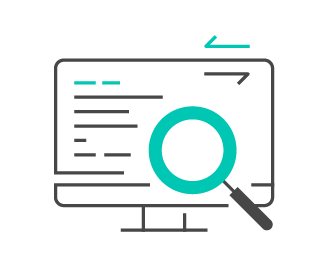
State of the Enabling Environment for Civil Society in Afghanistan (SEECA)
Civil society organizations (CSOs) are key actors in development, whose efforts complement those of the government, private sector, and donors. Recognizing the central role of the enabling environment in promoting or obstructing the effectiveness of civil society, AICS initiated its annual flagship research on the State of the Enabling Environment for CSOs in Afghanistan (SEECA) in 2016. This study examines the legal framework, governance, socio-cultural environment, financial and security environment in which CSOs operate. The CSO enabling environment cannot be enhanced by a single actor; it is, rather, the joint responsibility of all actors, including the government, private sector, CSOs, international community, and donors. The study presents recommendations for all stakeholders that emerged from the research findings, either directly suggested by respondents or corresponding to findings in the research about challenges CSOs in Afghanistan are facing. AICS conducted SEECA research in 2016, 2017 and 2018.


SEECA Follow-up Committees
Following SEECA 2018 launch, AICS in collaboration with civil society organizations and relevant government organizations has established SEECA Engagement Follow-Up Committees and held period meetings to discuss findings and recommendations of SEECA 2017 and 2018. The meetings will provide Afghan CSOs with an opportunity to discuss, debate the SEECA identified challenges and opportunities affecting CSO activities in Afghanistan and explore actions to operationalize relevant recommendations. In addition to a follow-up committee in Kabul, AICS has established similar committees in Herat, Kandahar and Jalalabad. Representatives of civil society in these provinces form the members of the committees.
Objectives:
- Facilitate a meaningful dialogue between CSOs, academia and experts on the key findings and recommendations of SEECA 2017 and 2018.
- Exchange of knowledge and lessons learned to assist the committee to better prioritize the challenges and their relevant recommendations and explore strategies for addressing challenges and implementing recommendations.
- Identify priority recommendations and facilitate coordination of SEECA Follow-Up Committee to jointly implement best recommendations as an efforts to provide enabling environment to CSOs.
National Civil Society Week
AICS organized the National Civil Society Week 2018 on June 26-28 in Herat province. 150 civil society organizations, civil society activists, government officials, media, academia, and private sector representatives from across the country attended this unprecedented event. The objective was to bring together CSOs and their partners from different provinces, and provide them with an open space for reflection, learning, and networking on issues related to the enabling environment for CSOs and CSOs development in Afghanistan. This event was comprised of five panel discussions, two international presentations, three success stories, and presentations by the Open Government Partnership secretariat, Innovation for Change and AICS about the certification program.
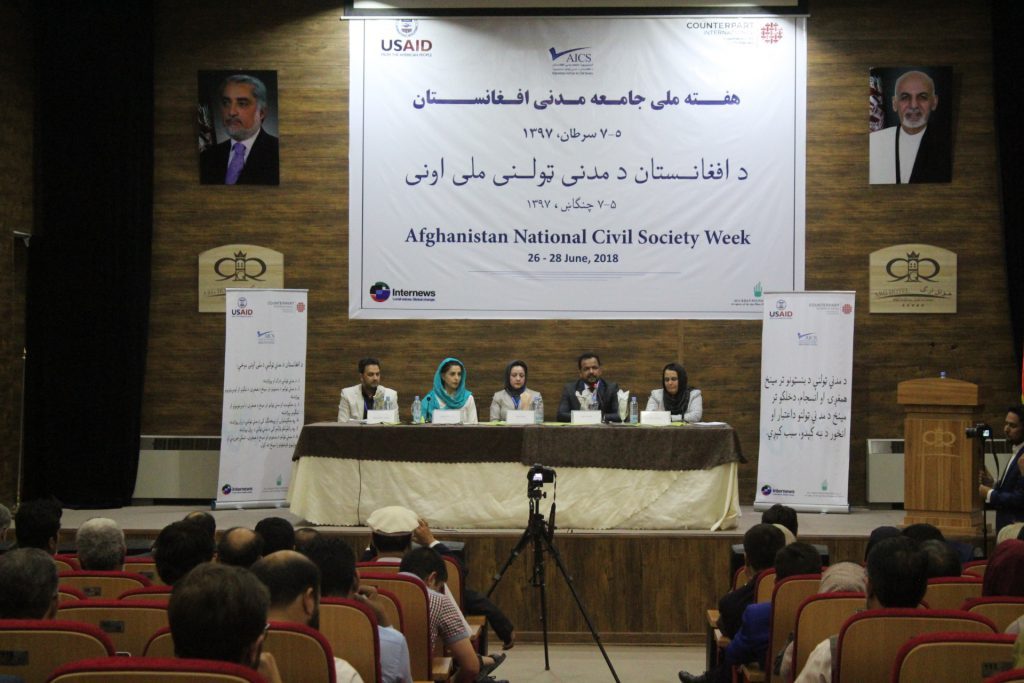
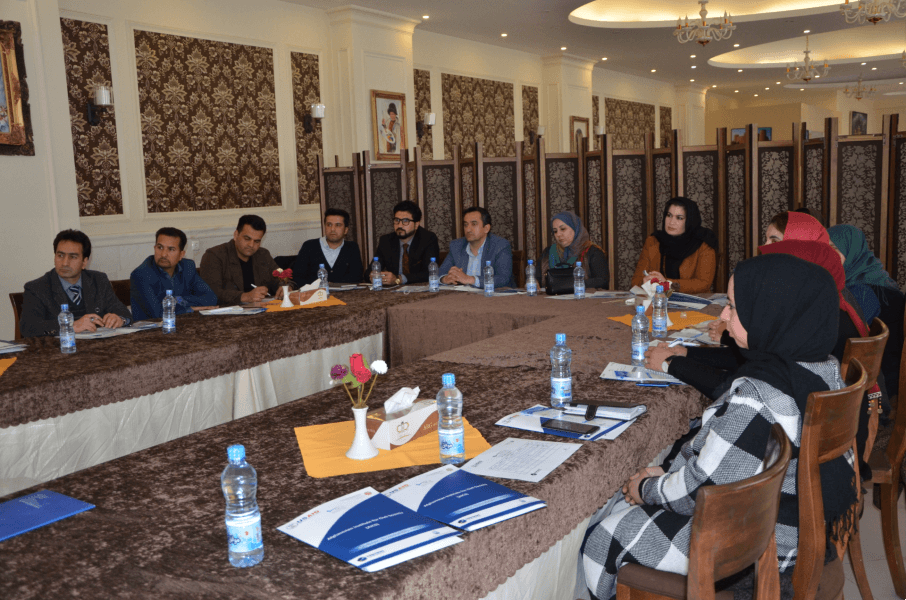
Roundtables
Since its establishment, AICS has conducted different thematic roundtables in Kabul, Herat, Kandahar, Balkh, Nangarhar, and Bamyan. These roundtable brought together civil society activists, media representatives, university lecturers, government and think tank scholars to share their thoughts on the relevant discussions. The reports of these discussions are available here.
Policy Briefs
As part of engagement with civil society, Policy Engagement and Research unit of AICS developed and published a number of policy briefs on different social issues. It has produced policy briefs on “CSOs financial Sustainability in Afghanistan,” “Coordination and Cooperation among CSOs and Government,” “Coordination among CSOs,” “CSOs image in Public,” “Image and Credibility of CSOs in Public,” “Insecurity as an Obstructing Factor for CSOs Development in Afghanistan,” and “Civil Space in Afghanistan”.
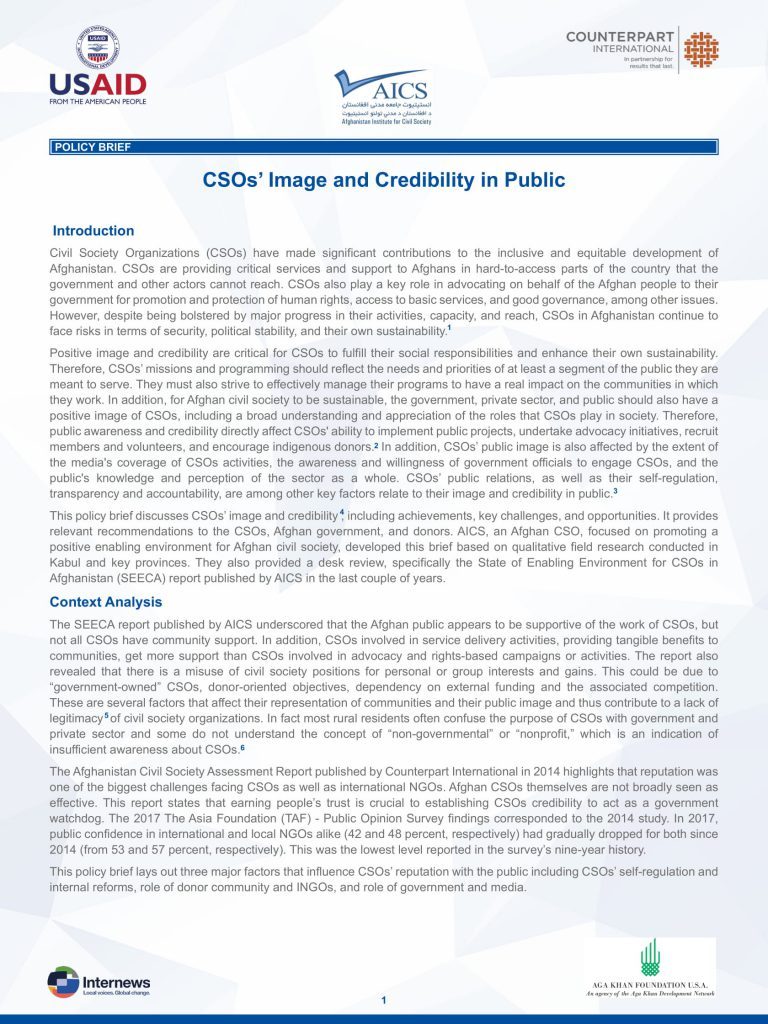
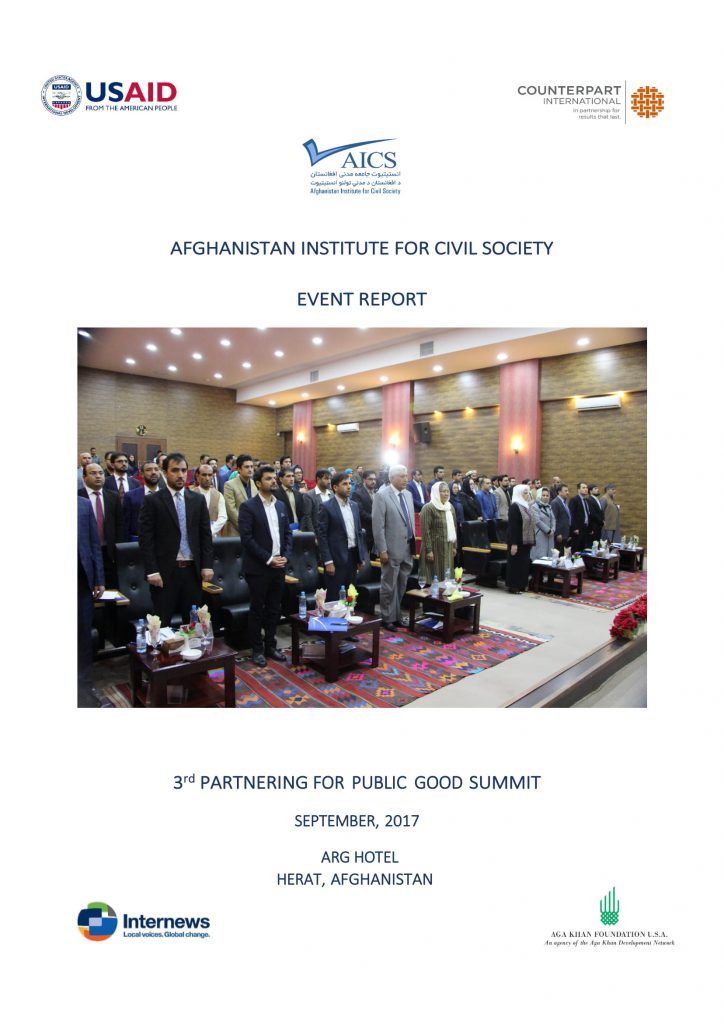
Partnering for Public Good (PPG) Summits
In 2015, 2016 and 2017, AICS convened Partnering for Public Good (PPG) summits. The goal of this partnership is to, in a continuous basis, identify shared goals, concerns, challenges and priorities among CSOs, private sector, media, academia and government and work together in form of a cross-sector partnership to meet the challenges and contributes to all partners’ growth as well as to the country’s development processes.
Regional Collaboration
Innovation for Change is a growing global network of people and online hubs, with regional hubs in Africa, Central Asia, East Asia, Latin America and the Caribbean, South Asia and most recently the Pacific. These hubs are places where people and organizations can connect and exchange ideas, debate the challenges of today and create solutions that will shape tomorrow. Innovation for Change South Asia Hub provides an inclusive and safe space to design ideas for creating an enabling environment for civil society to operate in closed spaces where government restrictions impede the ability of civil society organizations to work together and achieve their missions. Afghanistan Institute for Civil Society hosts the Secretariat of the Innovation for Change South Asia Hub and coordinates events and activities in South Asia region.
